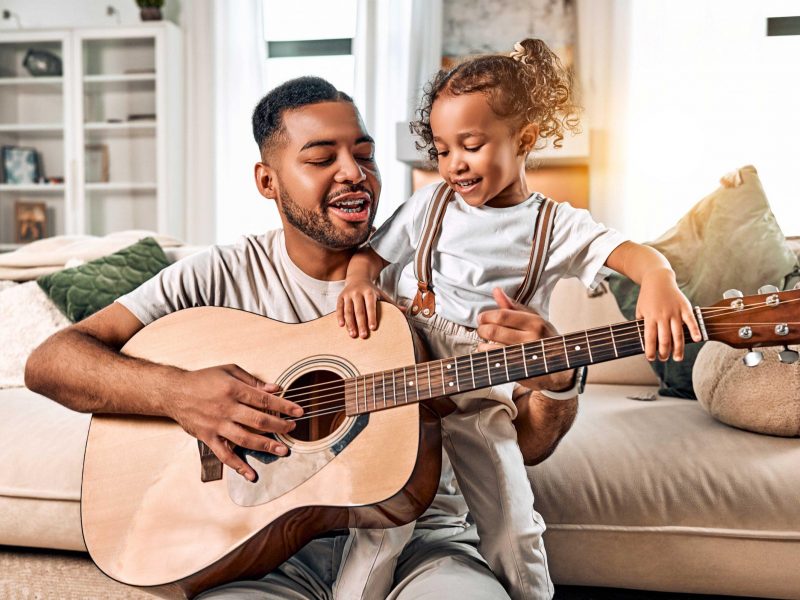
Show kids what grown-up love looks like
By Heidi Smith Luedtke, Ph.D.
My 4-year-old was crestfallen when I told him he we can’t get married. “I’m already married to Daddy,” I explained. “Really?” he whined, with a sad look on his small, sweet face. “Yes, really,” I said. Although I tried to be gentle, his disappointment was obvious. Unrequited romance is (apparently) difficult at any age.
Since our marriage predates our children, I guess it isn’t salient to them. My son’s misunderstanding made me think: maybe my husband and I don’t do enough to show our love for each other. Most days, we take turns doing household chores and childcare tasks. Sometimes we argue. In front of the kids, we’re more like coworkers than sweethearts.
Parents’ words and actions teach kids how to show interest and express love, and what it means to be in a committed relationship. If your kids’ love lessons come from Hollywood movies and YouTube videos, you might want to make your displays of affection more public. Yes, your 6-year-old might sing “Mommy and Daddy sitting in a tree, k-i-s-s-i-n-g!” and your tween will roll her eyes. Ignore kids’ giggles and feigned disgust. These lessons are too important to skip.
“Keeping things simple is often the way to teach the most complicated things,” says Harriet Lerner, Ph.D., clinical psychologist and author of Marriage Rules: A Manual for the Married and the Coupled Up. Read on for twelve tried-and-true ways to refresh your relationship and show kids what real love looks like.
Spend time together. If the only together time you get with your spouse happens after the kids go to bed, they don’t see your interactions. Take an interest in your spouse’s hobby even if it isn’t your idea of fun. Shovel the driveway or go grocery shopping as a team. Kids need to see parents collaborate, negotiate and just hang out together.
Listen.Set aside distractions when your spouse wants to talk. “Listening with an open heart is one of the greatest gifts we can give to our spouses and ourselves,” says Lerner. Let go of the need to be right. Love means truly hearing your partner’s position even when it hurts.
Picture it.When was the last time you and your spouse were photographed without the kids? Display images of your wedding and fun times you’ve shared as a pair to remind kids you are a couple, not just co-parents. Sneak into the photo booth at the mall if that’s your only opportunity. Get a kissy photo while you’re at it.
Take note.Write a love note to your spouse and put it near his seat at the dining room table or on the kitchen counter near his car keys. Express what you love about him in 20 words or less. Sign it “XOXO.” Let your kids see you gush.
Say “I Love You.”You love your partner and he knows it. But how often do you say those three little words? Verbal affirmations build reserves of good will. Studies by marriage researcher John Gottman, Ph.D., show happy couples have a 5:1 ratio of positive to negative interactions. Small exchanges add up to big – and long-lasting – love.
Give gifts. Don’t wait until your partner’s birthday to give tokens of affection. And don’t reserve flowers or backrubs for “I’m-so-sorry” situations. A new travel mug or sweet treat is a welcome gesture any day of the year. Gifts are more meaningful when they’re unexpected.
Serve gladly. Pick up the dry cleaning or bring your spouse coffee in bed. Helpful actions are daily ways to show we care. Point out acts of service your partner does for you so the kids know kindness flows both ways.
Hold hands. Physical affection doesn’t have to be R-rated. Give your beloved a hug, and hold hands in the car or while walking at the mall. Kiss hello, goodbye and goodnight. Touch is a powerful way to stay connected. Going public with your display proves sex isn’t the only way to embody affection. Take that, Hollywood!
Make compliments. You praise your children when they achieve important goals or act like civilized creatures during dinner. Give your spouse some sugar, too. “Surprise your partner with a compliment at the very moment he’s expecting to hear a criticism,” urges Lerner. Doing so increases your ability to have productive, healthy exchanges.
Apologize. Respond to disagreements or mistakes with a genuine apology. “That can go a long way toward restoring a sense of connection and well-being in the relationship,” says Lerner. In addition, “a willingness to apologize is often contagious.” Show maturity by accepting responsibility.
Open up.Remember the conversations you had with your partner before you had kids? Spend an hour a week over coffee or cocktails just dishing about what’s going on in your world. Make a commitment: no talk of chores, finances or parenting logistics during this dialog.
Be grateful.Thank your spouse for sharing the last piece of chocolate cake, for putting gas in the car, and for letting you vent about your mother. Acknowledging ways your partner enriches your life tunes you in to what’s good in your marriage and makes love grow.
Showing your love through simple, everyday actions teaches kids skills they will need to build healthy romantic relationships someday. It will also rev up romance. What are you waiting for? Give the kids something to talk about.
Heidi Smith Luedtke, Ph.D., is a personality psychologist and mom who shares psychology lessons for real life at heidiluedtke.com.







